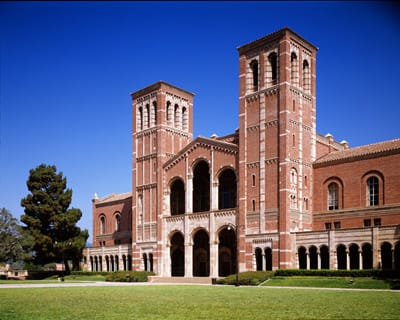Minority and out-of-state freshman enrollment to increase at the University of California this Fall


New enrollment data was released last week by the University of California showing that admissions of white and California resident students declined among freshmen who plan to attend a UC school this fall. Of the projected 37,151 freshmen who will attend a UC school, white students fell from 29.8 percent in 2009 to 26.3 in 2010, while students from out-of-state or overseas ticked up to 8 percent this year as compared to just 6 percent for 2009.
Despite a number of racially-charged incidents last year, most notably the abhorrent “Compton Cookout” held by a fraternity at UC San Diego, African American students who plan to attend a UC school increased slightly from 3.8 percent to 3.9 percent this year. Other minority students saw their numbers increase much more. Specifically, the number of Chicano and Latino students jumped over 2 percent from 20.9 to 23.1, and Asian students now represent 41 percent of incoming freshmen in 2010 as compared to 40.3 percent in 2009.
There was concern that the UC system’s financial problems and massive increase in fees last year would discourage enrollment among lower-income and minority students. However, UC officials indicated that the robust financial aid system, in particular the expansion of federal Pell Grants, helped to retain or increase those numbers.
On the other hand, UC’s financial woes have made non-resident students more attractive as each is charged an additional $22,000 each year over-and-above the tuition and fees of in-state students. This 2 percent increase in non-residents has some California families alarmed that they are being squeezed out for higher priced non-California students.
The largest concentration of non-residents student is at UC Berkeley and UCLA. Berkeley reduced its in-state freshmen by 900 to just over 4000, doubling its non-California freshman class this year to 22.6 percent. The number of resident and non-residents students at UCLA remained steady this year, while the number of international students increased from 207 to 364 this year. This increased the percentage of non-California students to 15 percent of UCLA’s 2010 freshmen class as compared to 11.4 percent in 2009.
Recognizing the criticism UCLA would be getting, Tom Lifka, UCLA’s associate vice chancellor for student academic services, stated in a LA Times article that “UCLA wants both the revenue and the cultural and intellectual diversity the foreign students bring, but the public resentment about the shift doesn’t take into account that the state is not meeting it responsibility to subsidize students.”
To keep these numbers in perspective, freshmen enrollment at other prestigious state universities like the University of Michigan, University of Virginia and University of Colorado are regularly comprised of more than 30 percent of out-of-state students.
To see the full report, read here.


